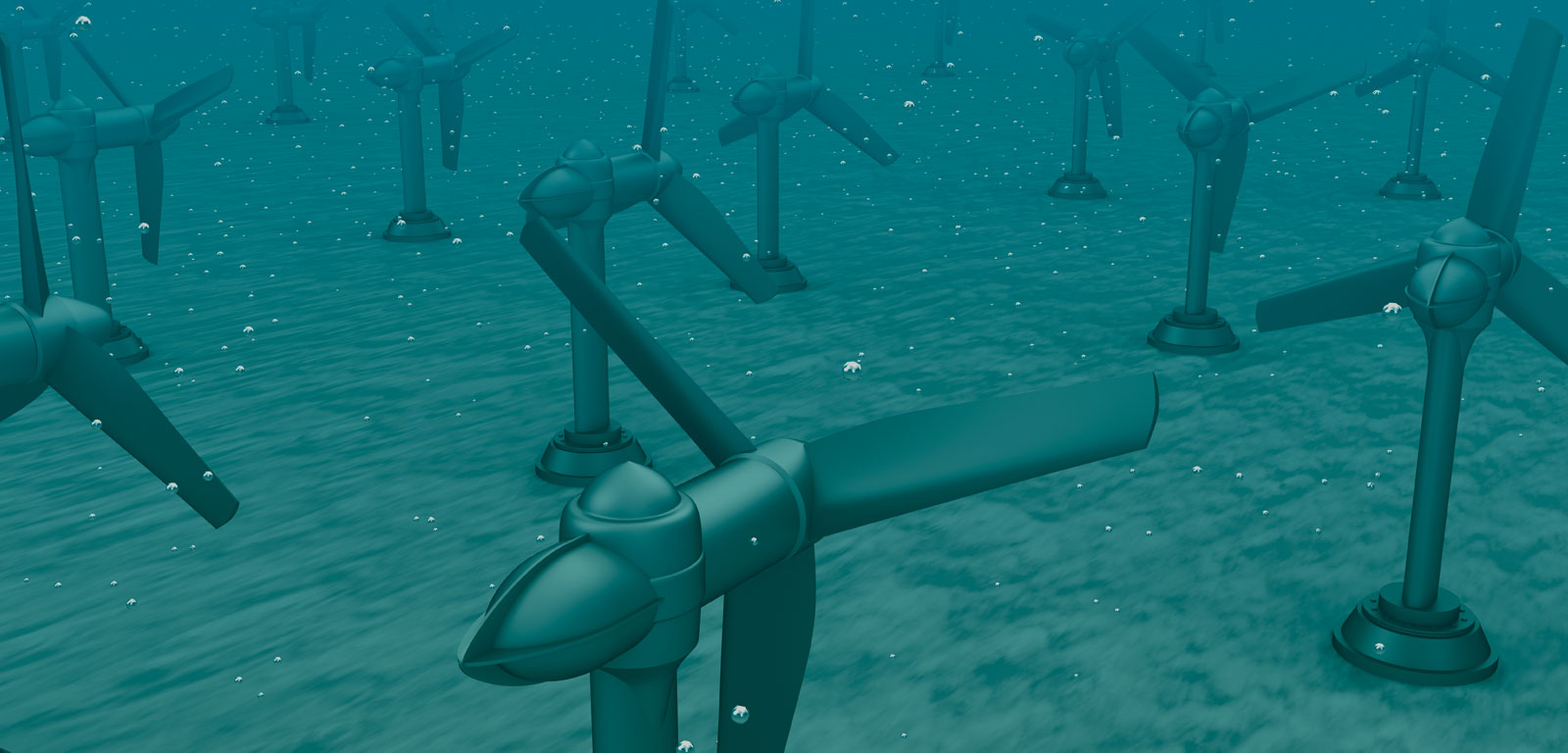Subject
Computational fluid dynamics for turbulent flows
General details of the subject
- Mode
- Face-to-face degree course
- Language
- English
Description and contextualization of the subject
In the framework of renewable energies, the study of the effects of fluid dynamics is crucial for the efficiency and performance when designing a device for energy extraction. The course covers the fundamentals of the theory and numerical simulation of fluid flow, encompassing turbulence effects . The mesh generation process, including goal-oriented adaptive mesh refinement, will also be tackled, since it is an essential and time-consuming component in the design process. Meshless methods will be also discussed.The students will learn the fundamentals concepts and mathematical background of computational fluid dynamics (CFD). They will learn to set-up numerical simulations for fluid dynamics applications through practical hands-on sessions. They will be able to select the suitable numerical set-up for the different flow conditions. The basic knowledge will be provided for post-processing and evaluating the results in terms of numerical reliability, forces and performance of a designed geometry.
Teaching staff
| Name | Institution | Category | Doctor | Teaching profile | Area | |
|---|---|---|---|---|---|---|
| GARCIA DE BERISTAIN, IMANOL | University of the Basque Country | Doctor | Bilingual | Applied Mathematics | imanol.garciad@ehu.eus | |
| ELLERO , MARCO | BCAM Basque Center for Applied Mathematics and Ikerbasque | Otros | Doctor | mellero@bcamath.org |
Competencies
| Name | Weight |
|---|---|
| Ability to learn the fundamental fluid dynamics equations, their derivation and physical interpretation | 25.0 % |
| Ability to tackle the solution of a practical problem in aerodynamics, by the use of suitable numerical approximation | 25.0 % |
| Ability to handle and understand the basics of the development of a computer program for solving the equations of fluid dynamics | 25.0 % |
| Ability to produce concise and clear report on the home assignments and to orally discuss it | 25.0 % |
Study types
| Type | Face-to-face hours | Non face-to-face hours | Total hours |
|---|---|---|---|
| Lecture-based | 18 | 35 | 53 |
| Applied computer-based groups | 12 | 10 | 22 |
Training activities
| Name | Hours | Percentage of classroom teaching |
|---|---|---|
| Computer practicals | 0.0 | 0 % |
| Expositive classes | 18.0 | 100 % |
| Individual study | 10.0 | 0 % |
| Lectures | 18.0 | 100 % |
| Student's personal work | 10.0 | 0 % |
| Systematised study | 35.0 | 0 % |
| Theory | 0.0 | 0 % |
| Working with it equipment | 12.0 | 100 % |
Assessment systems
| Name | Minimum weighting | Maximum weighting |
|---|---|---|
| Drawing up reports and presentations | 30.0 % | 50.0 % |
| Written examination | 50.0 % | 70.0 % |
Learning outcomes of the subject
Ability to learn the fundamental fluid dynamics equations, their derivation and physical interpretation.Ability to tackle the solution of a practical problem in fluiddynamics, by the use of suitable numerical approximation.
Ability to handle and understand the basics of the development of a computer program for solving the equations of fluid dynamics.
Ability to produce concise and clear report on the home assignments and to orally discuss it.
Ordinary call: orientations and renunciation
La calificación del alumno en la asignatura se determinará mediante la revisión y valoración de las tareas de evaluación propuestas a lo largo del curso. La modalidad de las tareas evaluables consiste en:- la resolución de ejercicios,
- el desarrollo de código informático que resuelva los problemas planteados,
- un informe escrito consistente en la descripción, análisis y conclusiones obtenidas en la resolución de los ejercicios y en la programación del código informático y su implementación para la resolución de los casos propuestos.
Las tareas evaluables deben enviarse al enlace correspondiente de la plataforma egela/moodle dentro del plazo anunciado.
Extraordinary call: orientations and renunciation
Los criterios de evaluación en la convocatoria extraordinaria serán los mismos que en la convocatoria ordinaria.Temary
1. Introduction to Conservation Laws in Fluid Mechanics.2. Viscous approximation and Navier-Stokes equations.
3. Finite Differences discretization method.
4. Finite Differences (exercises: advection-diffusion equation).
5. Finite Volumes method (openFoam)
6. Finite Volumes (exercises).
7. Turbulence modelling.
8. Finite Elements method (Galerkin formulation).
9. Finite Elements (exercises: FEniCS).
10. Lagrangian methods: Smoothed Particle Hydrodynamics and Vortex Methods.
Bibliography
Compulsory materials
Apuntes teóricos, ejemplos, ejerccicios y código informático accesible desde la plataforma egela/moodle, https://egela.ehu.eusBasic bibliography
1. Ferzinger&Peric, Computational Methods for Fluid Dynamics, Springer2. Pope, Turbulent Flows, Cambridge Press.
1. Textbook: Blazek, J., Computational Fluid Dynamics: Principles and Applications, 3rd Edition, Butterworth-Heinemann, 2015.


